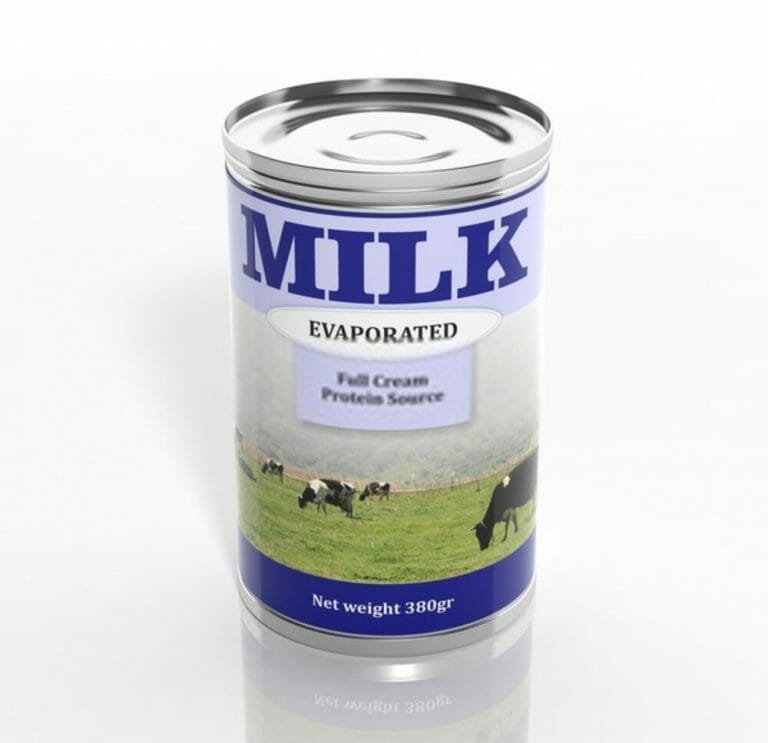What Are Some Alternatives to Creamer in Coffee?

Are you tired of the same old coffee creamer and looking for something new to enhance your morning brew? If so, you’re in luck!
While creamer has been a long-standing go-to for many coffee enthusiasts, there are plenty of reasons why you might want to explore alternatives.
Whether you have dietary restrictions, health goals, or simply a sense of curiosity, there are a variety of flavorful options to choose from.
In this article, we’ll delve into some exciting alternatives to creamer, providing valuable insights into dairy-free milk options and other unique ways to elevate your coffee experience.
- Embrace the Dairy-Free Revolution: Almond, soy, and oat milk aren’t just for vegans, they’re a delicious and healthy way to shake up your coffee routine!
- Natural Sweetness to the Rescue: Honey and agave syrup aren’t just alternatives, they’re a flavor upgrade to your coffee, adding a unique twist to each sip.
- Spice It Up!: Who said creamers have a monopoly on flavor? Cinnamon and vanilla extract can offer an exotic twist to your morning cup without the added calories.
- Go Nuts with Powdered Alternatives: Looking for a convenient and tasty switch? Try coconut milk and cashew powder for a tropical makeover to your coffee.
- Eco-Friendly Is the New Black (Coffee): Ditching traditional creamer isn’t just a health choice, it’s a vote for a greener planet. From oat milk’s water efficiency to honey’s bee-friendly nature, it’s a small step with a big impact!
Exploring Dairy-Free Milk Alternatives

When it comes to dairy-free milk alternatives, the possibilities are endless. Let’s take a closer look at some popular options and discover the unique characteristics they bring to your cup of joe.
1. Almond Milk
Almond milk has soared in popularity over the years, and for good reason. Made from almonds and water, this creamy alternative offers a delicate nutty flavor that blends seamlessly with coffee.
Almond milk is also rich in vitamin E and low in calories, making it a nutritious option. It’s worth noting that the texture of almond milk is slightly thinner compared to whole milk, providing a lighter consistency to your coffee.
2. Soy Milk
Another commonly used dairy-free milk alternative is soy milk. Derived from soybeans, this plant-based milk offers a smooth and creamy texture, similar to traditional cow’s milk.
Additionally, soy milk boasts a generous amount of plant-based protein and is often fortified with vitamins and minerals.
Its slightly sweet and mildly nutty taste can enhance the flavor of your coffee, providing a rich and satisfying experience.
3. Oat Milk
Oat milk has emerged as a rising star in the plant-based milk market. Made from soaked oat grains and water, this milk alternative offers a creamy consistency that pairs exceptionally well with coffee.
Oat milk has a subtle, mildly sweet flavor that adds a touch of indulgence to your brew.
It’s also known for its ability to froth, making it a popular choice for those who enjoy a foamy texture in their coffee creations.
To provide a quick and easy comparison, here’s a table outlining the nutritional profiles and taste contributions of these dairy-free milk alternatives:
| Milk Alternative | Nutritional Profile | Flavor Profile |
|---|---|---|
| Almond | High in Vitamin E | Delicate Nutty |
| Soy | High in Protein | Creamy, Nutty |
| Oat | High in Fiber | Subtle, Sweet |
By exploring these dairy-free milk alternatives, you can find the perfect match for your coffee preferences and dietary needs.
So why not go beyond creamer and elevate your coffee experience with these delicious alternatives?
Stay tuned for Part II of this article, where we’ll continue our exploration of creamer alternatives, including unique ingredients and flavor enhancers.
Natural Sweeteners as Alternatives
When it comes to adding a touch of sweetness to your coffee without relying on creamer, natural sweeteners can be a delightful choice.
Let’s explore how honey and agave syrup can bring both flavor and health benefits to your cup of joe.
- Honey: Known for its natural sweetness and versatility, honey has been used as a sweetener for centuries. Its distinct flavor profile adds complexity to coffee, with floral notes and a hint of caramel. Not only does honey lend a unique taste, but it also offers potential health benefits. Studies have suggested that honey may have antibacterial properties, provide antioxidants, and support digestive health.
- Agave syrup: Derived from the agave plant, this sweetener offers a flavor that is similar to honey but with a milder taste. Agave syrup blends well with coffee, infusing it with a gentle sweetness. Notably, agave syrup has a low glycemic index, meaning it has a minimal impact on blood sugar levels compared to refined sugars. However, it’s important to use agave syrup in moderation due to its high fructose content.
By using natural sweeteners like honey and agave syrup in your coffee, you can enjoy a touch of sweetness while avoiding the additives and artificial sugars often found in creamers.
Experiment with different amounts to find the perfect balance that suits your taste buds and health goals.
Adding Flavors to Coffee without Creamer

Who says you need creamer to create a flavor-packed coffee experience? By incorporating simple ingredients like cinnamon and vanilla extract, you can enhance the taste and aroma of your coffee without detracting from its pure essence.
- Cinnamon: This warm and fragrant spice has a long history of being coupled with coffee, dating back to ancient times. Ancient civilizations, including the Egyptians and Romans, used cinnamon to infuse their beverages with a delightful, earthy flavor. Sprinkling a pinch of cinnamon into your coffee imparts a subtle sweetness and a comforting warmth. Beyond its delectable taste, cinnamon has also been associated with potential health benefits, such as aiding in blood sugar regulation and containing anti-inflammatory properties.
- Vanilla extract: Originating from the orchids of Central America, vanilla extract adds a luscious and aromatic dimension to coffee. The natural sweetness and floral undertones of vanilla bring a touch of luxury to your cup. Whether you opt for pure vanilla extract or use a vanilla bean, this versatile flavoring agent can be added directly to your coffee grounds or stirred into your brewed cup. In addition to its wonderful taste, vanilla has been linked to reduced stress levels and potential mood-enhancing properties.
Challenge yourself to embark on a “Flavor Adventure” by experimenting with other spices and extracts such as nutmeg, cardamom, or even lavender.
By exploring different flavor combinations, you can elevate your coffee experience and discover unique blends that perfectly suit your taste preferences.
Bulletproof Coffee: A Creamer-less Creamy Coffee
If you’re looking for a creamy and satisfying coffee experience without traditional creamer, Bulletproof coffee might just be the answer.
This unique concoction, popularized in the keto diet community, combines coffee with healthy fats to create a velvety texture and provide sustained energy throughout the day.
To prepare Bulletproof coffee, simply brew your favorite coffee as usual and then blend it with grass-fed butter or ghee and a dash of MCT oil.
The combination of these ingredients creates a rich, frothy beverage that feels indulgent while still fitting within a low-carb, high-fat diet.
Bulletproof coffee owes its creamy texture to the fats it contains. Grass-fed butter or ghee adds a smooth and buttery flavor, while MCT oil, derived from coconut oil, provides an additional boost of energy.
Many enthusiasts claim that starting their day with Bulletproof coffee keeps them satiated for longer periods, enhances mental clarity, and boosts physical performance.
While scientific research on the specific benefits of Bulletproof coffee is limited, anecdotal evidence and testimonials from the fitness community suggest that it may have potential advantages.
As with any dietary change, it’s important to listen to your body and adjust ingredients and quantities according to your individual needs and goals.
Powdered Alternatives: Convenience in a Packet
For coffee lovers on the go or those seeking convenience without compromising flavor, powdered alternatives provide a portable and versatile solution.
Popular options like powdered coconut milk and cashew powder offer the creamy goodness of traditional creamer while being easy to carry and having a longer shelf life.
Powdered alternatives have gained popularity among campers, outdoor enthusiasts, and frequent travelers for their convenience and ability to mix well with coffee.
These powdered versions, typically made from dehydrated milk substitutes, can be reconstituted with hot water to create a creamy and delicious addition to your coffee.
One advantage of powdered alternatives is their portability. They come in small packets or canisters, making them easily transportable for when you’re on the move.
Additionally, powdered alternatives often have a longer shelf life compared to liquid creamers, making them a practical choice for stocking your pantry.
Let’s take a look at a quick comparison of popular powdered alternatives in terms of taste, nutritional facts, and convenience:
| Powdered Alternative | Taste Profile | Nutritional Facts | Convenience |
|---|---|---|---|
| Coconut Milk Powder | Creamy, Coconutty | Contains healthy fats and minerals | Easy to carry and reconstitute |
| Cashew Powder | Smooth, Nutty | Provides fiber and protein | Lightweight and compact packaging |
By having these powdered alternatives on hand, you can enjoy a creamy coffee experience no matter where your adventures take you.
Health Benefits of Switching from Creamer

Switching from traditional creamer to alternative options can offer several health benefits.
Let’s take a closer look at the advantages of incorporating these alternatives into your coffee routine, supported by scientific studies and expert testimonials.
- Reduced Caloric Content: Many traditional creamers can be high in calories and added sugars, which may contribute to weight gain and other health issues. By switching to dairy-free milk alternatives or natural sweeteners, you can significantly reduce your calorie intake without sacrificing flavor.
- Improved Digestive Health: Creamers with lactose or other additives can sometimes trigger digestive issues for individuals with sensitivities or lactose intolerance. Opting for dairy-free milk alternatives, such as almond milk or soy milk, can help alleviate these concerns and promote better digestion.
- Nutritional Benefits: Dairy-free milk alternatives often contain essential nutrients, such as calcium, vitamin D, and plant-based proteins. These nutrients contribute to bone health, immune function, and muscle maintenance. Additionally, natural sweeteners like honey or agave syrup may contain antioxidants and potential anti-inflammatory properties.
It’s important to note that individual dietary needs may vary, so consulting with a registered dietitian or healthcare professional can provide personalized guidance on which creamer alternatives align with your specific requirements.
Experimenting with Your Own Creamer Alternatives
Why not take your coffee experience a step further by exploring homemade creamer alternatives?
Crafting your own creations allows you to customize flavors, control ingredients, and embrace your creativity in the kitchen.
Here are a few DIY recipes to get you started:
- Homemade Almond Milk: Soak raw almonds overnight, blend them with water, and strain the mixture to create your creamy almond milk. Add a touch of vanilla extract or a sprinkle of cinnamon for additional flavor.
- Date Sweetener: Blend pitted dates with hot water until smooth, creating a natural sweetener that pairs well with coffee. Adjust the consistency by varying the amount of water added.
- Stevia Syrup: Stevia leaves steeped in boiling water can be transformed into a liquid sweetener with minimal calories. Experiment with the amount of leaves and steeping time to find your desired sweetness level.
Feel free to explore these recipes and experiment with different ingredients to find your perfect creamer alternative.
Get creative, have fun, and embrace the satisfaction of customizing your daily cup of coffee!
Sustainable Coffee Drinking
Promoting sustainability is a crucial aspect of ethical coffee consumption. When considering creamer alternatives, it’s essential to assess their environmental impact.
Here’s a comparison of the sustainability practices and environmental impact of some alternatives to traditional creamers:
- Dairy-Free Milk Alternatives: Plant-based milk alternatives, such as almond milk, soy milk, and oat milk, generally have a lower carbon footprint compared to dairy milk. However, it’s important to consider factors like water usage and land use as well. Some brands prioritize sustainable sourcing, ensuring responsible farming practices and reducing their environmental impact. Look for certifications like Rainforest Alliance or Fairtrade to support brands that prioritize sustainability.
- Natural Sweeteners: Honey and agave syrup are natural products, but it’s important to consider the sourcing practices. Look for honey brands that support bee conservation and sustainable beekeeping practices. Agave syrup, when sourced sustainably, can be an environmentally friendly option due to its lower water and land requirements compared to other sweeteners.
By choosing alternatives with sustainable practices, you contribute to the overall goal of reducing the environmental impact of coffee consumption.
Be mindful of packaging waste as well and opt for products with eco-friendly packaging or consider making your own creamer alternatives at home to reduce waste.
FAQs
Conclusion: Embracing Creamer Alternatives
Exploring alternatives to traditional creamer opens up a world of possibilities for enhancing your coffee experience.
Throughout this article, we’ve delved into various options, highlighting their unique flavors, health benefits, and sustainability factors.
To guide you on this journey, here’s a checklist to help you embrace creamer alternatives:
- Assess your dietary preferences and health goals.
- Research and choose dairy-free milk alternatives that align with your taste and nutritional preferences.
- Experiment with natural sweeteners like honey or agave syrup, adjusting quantities to meet your desired level of sweetness.
- Explore homemade alternatives using DIY recipes, such as almond milk or date sweetener, to achieve a personalized touch.
- Consider the sustainability practices of the alternatives you choose, supporting brands that prioritize ethical sourcing and production.
Remember, taste is subjective, so don’t hesitate to try different alternatives until you discover the ones that perfectly suit your preferences.
By embracing creamer alternatives, you’ll not only expand your coffee repertoire but also contribute to a healthier you and a more sustainable world.
Now, go forth and enjoy the journey of coffee exploration with these exciting creamer alternatives!






